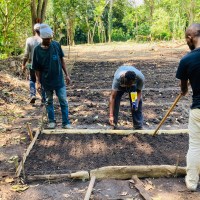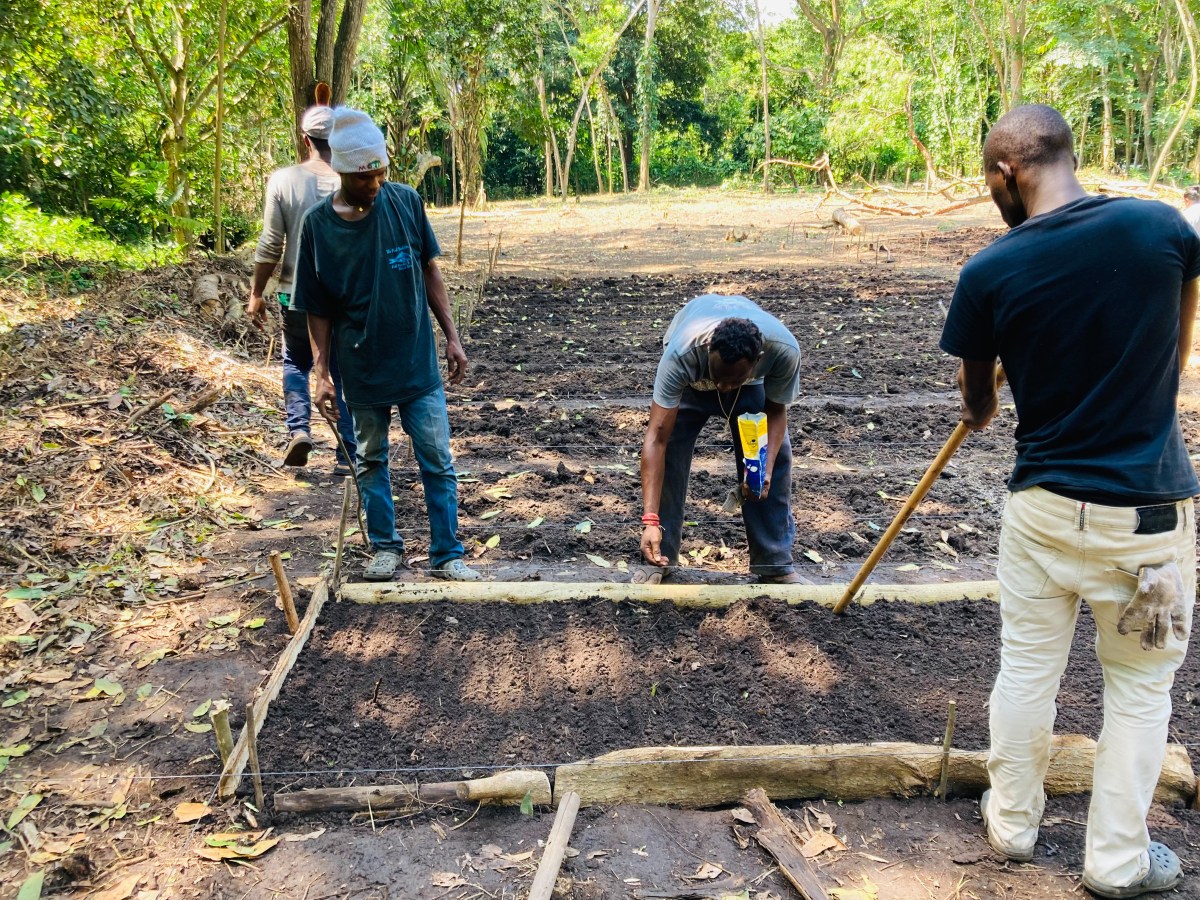January 26th, 9:33 PM. Mexico.
“I have learned many things!” -Jean, originally from Haiti, now in southern Mexico
It is not one person or a couple—there are thousands of asylum seekers in the state of Chiapas, Mexico living in need. According to Mexican authorities, around 27,000 asylum seekers presented their refugee applications in 2020 in Chiapas, and 90,000 in 2021.
Yes, the number of asylum seekers in southern Mexico who submitted refugee applications would fill the biggest stadiums in Latin America or the United Kingdom.
Many of our asylum seeker friends have to wait around six months at Mexico’s southern border before hearing news about the status of their refugee claims. Many face racism and persecution from Mexican authorities, and have to live without access to paid employment, food, education, and other basic services.
Because of this situation, the Preemptive Love community has partnered with a local shelter for asylum seekers, and a local farming family, to plant an orchard and vegetable gardens on communal land (“ejido” in Spanish) to provide fresh food and employment for asylum seekers and the local community.
Through the shelter, interested asylum seekers can sign up to work on the farm and earn a stipend for their labor while they learn new skills. Through the local family, land, tools, technical advice, and a connection to the local community are provided. And our Preemptive Love community, we provide funding and technical advice, as well as monitoring and assessment for the project, ensuring that the project unfolds as designed, and resources are used as intended.
We aim to meet diverse goals through this project, including:
-our asylum-seeking friends get to grow and harvest their own food, reduce their food expenses, and avoid vegetable shortages. 75% of the produce grown in this project goes to our partner shelter, where all shelter residents get to enjoy the fresh, nutritious produce.
-the orchard becomes a space for social integration between asylum-seeking friends and the host community, instead of a place of misunderstanding and tension. Many in this part of southern Mexico resent the influx of migrants and the changes they bring to their communities. In this project, the local community benefits along with asylum seekers. 25% of the produce grown in this project goes back to the host farming family, who have created a restaurant on-site to help make the farm more sustainable.
-our asylum-seeking and local friends contribute to taking care of the environment and facing climate change head-on.
-our asylum-seeking friends have the opportunity to become more aware of the origin of their food and have the chance to make a healthier lifestyle.
To date, asylum-seeking friends have been recruited and trained. The land has been cleared and the orchard planted—an area that exceeds more than three basketball courts. Twenty-three types of plants have been sown, and they have already harvested the first produce: radishes, coriander, and green beans.
One of our amazing friends working on this project is Jean. Jean is an asylum-seeker who was forced to leave his country, Haiti, and after a hard journey found a temporary home at our partner shelter. Jean started to work on the orchard in December. You can find him taking care of the plants or harvesting some green beans and radishes. Although his first language is Haitian Creole, being in the orchard and working with the farming family has helped him practice Spanish. He smiles while he talks about the project: “The orchard is good,” he tells us. “I have learned many things: how to break up earth, how to plant, many things.” For Jean, this is a great way to invest his time while he waits to hear about his refugee application. “I like the job here. Learning things” Jean says.
Jean is so grateful to all the ones involved in this project: the shelter, the local family, and the Preemptive Love community. In his humble accent, he says “you’re good people.”
Thank you, friends, for your ongoing support. Thanks to you, our migrant friends are working, receiving compensation for their job, knowing the origin of their food, harvesting food, practicing Spanish, and little by little integrating into the local community. We are excited to continue supporting asylum-seeking and local friends and to share more of their stories in the future.


